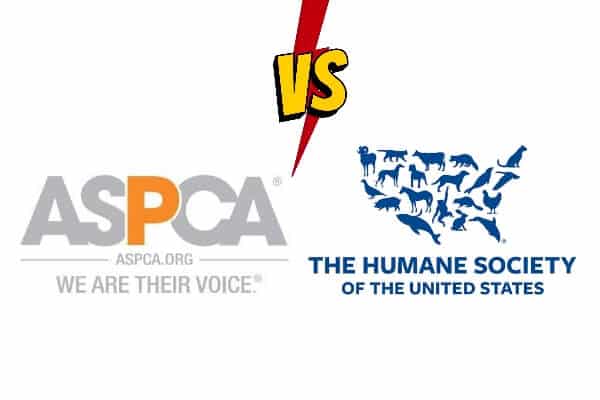When considering a charitable contribution to aid animal welfare, a critical decision arises: should one donate to the Humane Society or the ASPCA? This conundrum not only challenges our understanding of distinct organizational missions but also compels us to weigh the broader implications of our donations. As an animal-loving activist, you may find yourself pondering this question: what truly differentiates these two reputable organizations, and where might your contribution make a more significant impact?
To embark on an informed journey through this dilemma, it is essential to dissect the fundamental missions and operational methodologies of both the Humane Society and the ASPCA. At first glance, both organizations advocate for animal welfare, yet their approaches reveal substantial disparities.
The American Society for the Prevention of Cruelty to Animals (ASPCA) was established in 1866. A trailblazer in the realm of animal rights, its core mission revolves around preventing cruelty to animals through various direct interventions. The ASPCA engages in vital campaigns to enact legislative change, strives to enhance animal shelter services, and dedicates resources to animal rescue operations, particularly in cases of severe neglect, abuse, or natural disasters. They are instrumental in pushing for legal reform in many states, aiming to strengthen anti-cruelty statutes.
Conversely, the Humane Society of the United States (HSUS) was founded in 1954 and operates on a broader scale. While it indeed shares the goal of combating animal cruelty, it also encompasses a wider spectrum of issues, including factory farming, wildlife protection, and habitat preservation. This holistic strategy aims to foster a more humane world for all animals. Notably, it employs initiatives in legislative advocacy, corporate outreach, and educational programs designed to cultivate compassionate behavior towards animals across society.
With this foundational understanding, it is essential to examine how each organization allocates resources toward their respective missions. This scrutiny will provide insight into which organization aligns more closely with an individual’s philanthropic objectives. For example, the ASPCA spends a considerable portion of its budget on animal rescue and anti-cruelty initiatives. As such, donations here can directly facilitate on-the-ground efforts, providing immediate assistance to animals in distress.
On the other hand, the Humane Society allocates a substantial portion of its resources to legislative advocacy and national campaigns aimed at systemic change. This means that a donation to the HSUS may result in longer-term solutions that address root causes of animal suffering, rather than just alleviating immediate needs. For an activist seeking to effect large-scale transformation, this may represent a more desirable avenue for contribution.
Meanwhile, examining each organization’s financial transparency is critical in assessing their efficacy. Both organizations operate under the scrutiny of watchdog entities that evaluate their finances and operational accountability. The ASPCA has received accolades for its transparency, resulting in high ratings from various charity evaluators. Nevertheless, the HSUS has faced scrutiny regarding its executive compensation and overhead costs. This disparity might challenge potential donors who prioritize financial efficiency in their charitable contributions.
Furthermore, the outreach and community engagement tactics of both organizations merit consideration. The ASPCA emphasizes direct animal services, often working in tandem with local rescue groups to provide shelter, veterinary care, and other essential services. The emotional connection these efforts foster, as well as the tangible support for local animals in need, can be profoundly appealing to donors who prefer to see their contributions making an immediate local impact.
In contrast, the Humane Society tends to focus on broader initiatives that may sometimes seem abstract to individual donors. Its campaigns address international wildlife trade, public safety issues related to dangerous animals, and habitat protection, merging animal welfare with environmentalism. While these initiatives can lead to significant advancements in public policy and societal attitudes toward animal welfare, they may lack the personal touch some donors seek, potentially leaving them questioning the direct impact of their donation.
As we navigate these complexities, one must also reflect on personal values when deciding where to donate. A passionate advocate for shelter animals may lean towards the ASPCA, while a donor with a broader interest in systemic animal welfare issues might find the Humane Society’s initiatives more aligned with their ideals. This introspection reveals that determining where to donate transcends merely understanding organizational structures; it is intrinsically linked to the vision of animal welfare each individual holds dear.
In conclusion, whether to donate to the Humane Society or the ASPCA is a decision that merits careful consideration. Both organizations work fervently toward advancing animal welfare, albeit through distinct methodologies and scopes of influence. Recognizing the nuances of each will empower potential donors to make informed choices that resonate with their values and aspirations for a humane world. Ultimately, regardless of where the benevolence flows, the key lies in the unwavering commitment to making a difference in the lives of animals. In a landscape where animal welfare needs persist, every contribution counts—and the choice between the Humane Society and the ASPCA could be the pivotal moment where your passion for animals translates into real, meaningful change.










